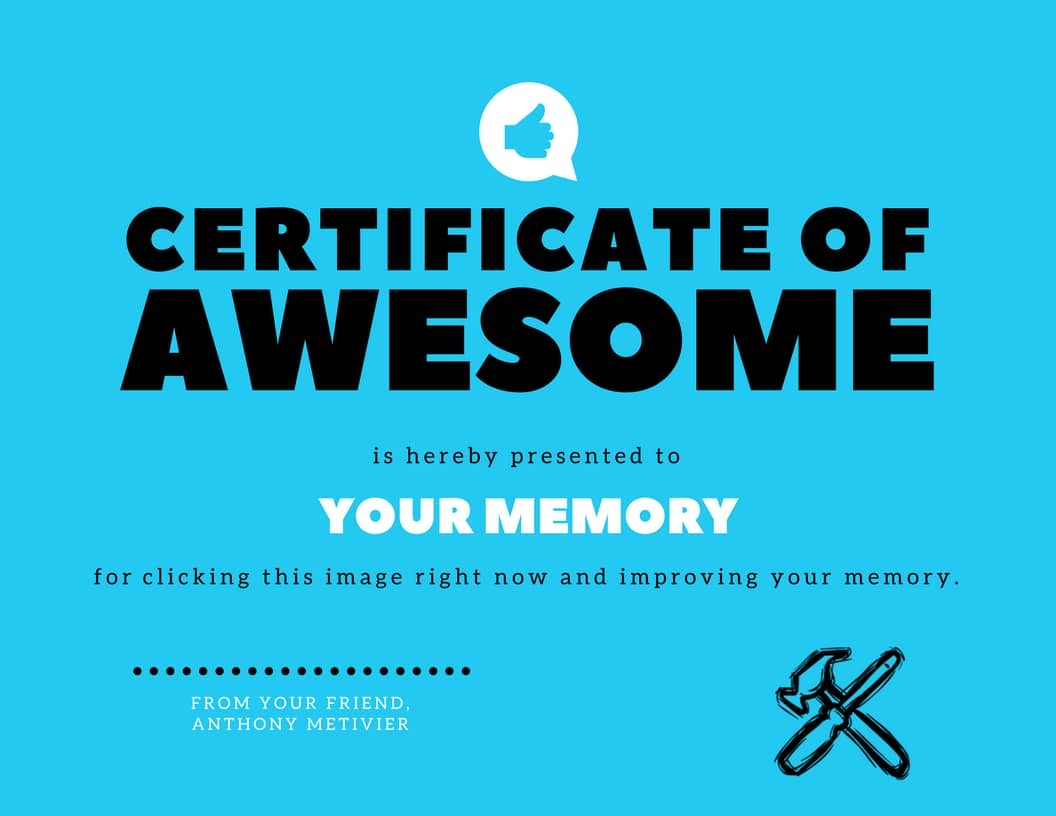Podcast: Download
Subscribe: Apple Podcasts | RSS

Sometimes we say something we think is funny. Other times we’re just being rude.
Heck, sometimes we don’t even know why we get the feeling we’ve said something wrong or offensive.
For whatever reason, often within seconds…
Ours words suddenly rub us the wrong way.
Worse:
The bad feeling that won’t go away starts to itch…
It may even burn, sometimes leading us to say even more ludicrous things that make us feel even worse.
Once those words are out there … they’re out there.
The worst thing of all:
This Problem Chews Up Your Mental Space And
Memory Resources!
Make no mistake:
The things we say can be damaging.
Very damaging, especially regarding how others perceive us and how we perceive ourselves.
But it’s probably our self-perception that takes the hardest hit, especially if we have OCD tendencies and repeat words and phrases in our minds.
(That happens to me a lot, along with earworms.)
The “Childish” Reasons People Self-Punish
Ultimately, no one knows why we self-punish.
It could be that our bodies and minds are trying to build up energy to deal with the pain. But we do it in a childish way.
Ludwig Wittgenstein has been credited with originating the story of the child who made his way into a cocktail party.
While there, the child banged his knee on a table and started crying loudly.
“There, there” said all the adults when they saw his bloodied knee.
And the adults continued cooing at the child to comfort him as they applied rubbing alcohol and a bandaid to the wound.
Now imagine the same cocktail party.
This time, instead of a child, a grown man bangs his knee.
He feels the exact same pain and his wound produces the same amount of blood.
But the difference is that the man does not bawl in public.
Instead, the grownup observes silently that he has banged his knee and excuses himself to the washroom.
There, he finds the rubbing alcohol on his own and administers a bandaid.
Do You Scream In Silence?
Why does the man do all of this in silence instead of crying his heart out?
Simple:
Social conditioning over the years has not changed the nature of the pain or the work needed to care for the wound.
But social conditioning has changed the nature of what makes for an appropriate response to the pain.
According to some self-punishment theories, even the maturest of adults have minds that still need conditioning so that they respond in mature ways to mental pain.
Since a lot of conditioning comes from words, we can use words to “recondition.” Here’s one simple and easy to remember trick before we continue with a host of holistic strategies:
Exactly How To Mature Your Mind And
Stop Mentally Punishing Yourself
I don’t know about you, but in my past, I’ve called myself an idiot for the verbal mistakes I’ve made at least a thousand times.
In fact…
I’ve said many things worse than that to myself. And no, I’m not going to repeat them.
But I’ve come to understand that they were just the signs and symptoms of an untrained mind. There was nothing wrong with that mind. It just hadn’t been matured.
And although this self-punishment still happens once in awhile, I’ve learned to settle the self-abuse down.
The cure mostly comes down to a combination of relaxation, mindset and huge respect for memory and the practice of memory improvement and maintenance over many years.
Here are four ways I’ve dealt with the self-punishment so that it no longer chews up memory power, no longer bashes self-esteem and no longer has the power to reduce life satisfaction:
Tip #1:
Learn The Scary Truth About Social Inattention
Here’s a power reality:
A HUGE percentage of the things we say to others tend to be forgotten.
In fact, thanks to something called inattentional blindness, most people barely perceive what you’re saying at all.
Why?
Because the people you’re talking to are barely paying attention.
Even if they were, human memory is flawed in your favor.
If the minds of other people are barely tracking a tenth of what you’re saying, they are encoding far less than that into memory.
The Ultimate Proof That Few People
Remember What You Say
Want proof?
Go ahead and study yourself when listening to others and I think you’ll find that it’s true.
You’re not focused like a laser on what they’re saying.
You’re not enjoying photographic memory, nor recording everything like a video camera.
Quite the opposite.
The truth?
Your Mind Is All Over The Place!
More than half the time, you’re thinking about what you’re going to say next. You’re probably even obsessively repeating what you want to say in your mind so you won’t forget.
The rest of your conscious mind is either thinking about the past, the future or fantasizing about some alternate present.
This significant amount of brain activity means that you’ll miss entire details completely.
All this happens despite the fact that you’ll be experiencing reality as an unbroken continuity.
Scary, but true.
What this all means is that when you say inappropriate things, you shouldn’t get too worried about it and start flagellating yourself.
You also shouldn’t start self-punishing yourself for having the attention span of a goldfish (you don’t).
But if you get all hot and bothered about something you said, the best trick I know is to confront the feeling head-on.
Just ask the person point blank:
“Did what I said about x a little earlier offend you? Because I apologize if it did.”
Chances are you’re the only one bothered by what you said, and it’s probably already been forgotten – assuming it was registered in the first place.
If you punish yourself at all for things you’ve said, please take up this practice of publicly confronting this feeling.
You will feel tremendous relief when you do.
Tip #2:
Take Responsibility For Your Verbal Oil Spills
As I’ve just suggested, one great solution to managing your anxiety about verbal diarrhea is to confront it directly. If you’ve said something that bothers you, don’t be afraid to draw attention to it.
And go in prepared to do so.
Decide to be a conscientious conversationalist and own up to every faux pas you make.
In other words:
If you say something that either is insulting or you feel could be interpreted as insulting, be the one to call yourself out on it.
What’s the worst that can happen?
The answer is simple:
The worst that can happen is that people think you’re weird…
Not such a bad thing, is it?
In all likelihood, they’ll probably appreciate you more and admire you.
Why?
Because you take ownership over your mouth – even if they never noticed the thing you said in the first place.
Tip #3:
Always Be Cool
I can’t always pull it off the Always Be Cool rule due to food sensitivities and psoriasis arthritis.
Unfortunately, even with the strict dietary controls I place on my diet, it’s impossible to know the location of every farm and every nibble eaten by every chicken.
So yes, some things send me into a conniption that can last far too long. But overall, I’m generally a calm and cool guy.
I owe that stability to a few things.
The first is regular meditation. I practice multiple kinds, mostly structured around the sit-just-to-sit variety I learned from an Alan Watts recording.
I’ll also practice Savasana, breath-withholding and walking meditations that incorporate a bit of both. (Yes, you can lay down in parks during walks.)
Use Memory Techniques Everyday For Mental Relief
Second, I use memory techniques everyday. For reasons that go beyond learning.
Make no mistake:
A lot of people use memory techniques as a means to an end, which is great.
That’s what memory techniques are there for.
Learning a new language, remembering numbers, remembering names, and more.
Why Memory Techniques Are
Better Than Psychoanalysis
But there’s also tremendous therapy to be had from memory techniques. They make you feel confident, composed and relaxed.
These outcomes are especially important when you’re a guy like myself who is always fighting for stability and hoping to stay off medication to do it.
If you want the background to that story, here’s a video from quite some time ago when I declared I was going on the psychopharmaceutical sauce for good:
As brave as I sound in that video, it was actually one of the scariest things I’ve done in my life.
But everything worked out.
Why?
The answer is simple:
Memory Techniques + Meditation =
The Perfect Time Machine
When you practice meditation and memory, you’re always more in the moment.
In other words, you’ve got a “time machine” that keeps you focused on the present.
Why is being present so cool?
Because true presence means that you’re paying attention to what you’re saying BEFORE you say it.
And that’s the ultimate solution to self-punishment:
Pre-awareness that prevents you from making the kinds of errors you punish yourself for in the first place.
Tip #4:
Learn To Listen To Yourself And Others
This one is going to require a bit of self-analysis and the study of others. It might also be considered half-lunacy, as Freud himself noted in his General Introduction to Psychoanalysis lectures.
Beyond that, the premise is that we all unconsciously encode messages in the things we say that seek to communicate what we’re really thinking.
We typically tend to send these messages in the form of the stories we tell or off-handed remarks. They can be attempts at manipulation, retaliation or simply telling truths too dangerous for our conscious mind to handle.
I learned to spot the tendency to encode information unconsciously in myself and others from Robert Langs.
Langs was a controversial figure with whom I underwent Communicative Psychotherapy in New York. His style of therapy is based almost entirely on dream interpretation in a situation in which death anxiety is deliberately invoked by the therapist.
Langs died recently and I’m still stunned by his passing.
He seemed like one of those timeless figures who would always be around, particularly because his ideas were so impactful and larger than life.
Although I only spent six months in weekly sessions with him, in addition to reading his books, my time with Langs completely changed my way of living and communicating.
How To Get The Best Psychotherapy
In The World At Very Little Cost
The best way to learn how to spot your unconscious communications without the help of a therapist is to journal your dreams. You’re not going to try and interpret them as such, but just get a feeling for the kinds of narratives that come up.
In a session with Langs, he would ask you to narrate one or more dreams. He would then have you free associate to it and recite whatever came to your mind.
This task always brought up a lot of irrational resistance in me. There was never any reason not to tell Langs the things that came to my mind, but yet it would often seem threatening to do so. Sometimes the resistance would bring the session to a complete shutdown.
Gradually I learned to open up and reveal the connections that would come up in my mind. I couldn’t always do it, but Langs would always ask what the dream and how I related it had to do with him.
It was always a perplexing question, but I’ll never forget the day I finally drummed up the courage to start answering it.
Because the truth is that when we tell stories to others, there does always seem to be some comment we’re making on the present situation and the person to whom we’re speaking.
So if you can find someone to whom you can tell your dreams and who can hear what you’re REALLY saying, this is a great way to practice the awareness of what you’re saying in any conversation.
And you can learn to listen to others better too. That doesn’t mean judging them or necessarily telling them what you’ve perceived. But it will help you form better ideas about the real messages you’re receiving and shape how you respond in more sensitive ways.
Ready To Stop The Self-Punishment?
Although it won’t necessarily happen overnight and may still recur from time to time, you can get a handle on punishing yourself for saying stupid things.
Just use the tips above and you’ll start to see a difference immediately.
And if you’re interested in learning more about how self-directed dream therapy can help, I recommend getting my video course with its bonuses, How To Remember Your Dreams.
In this course, you’ll learn more about hearing your true voice by unlocking an aspect of memory improvement that you’ve likely never considered before.
Use Coupon Code “DREAM” and take $50 off your tuition in this exclusive memory improvement course. Alternatively, you can get How to Remember Your Dreams as part of the Magnetic Memory Method Masterclass.
You might want to take my free course on creating Memory Palaces first.
The choice is up to you and I’d love to hear you in the conversation below. What are your thoughts on defeating self-punishment for the stupid things we sometimes say and do?





I don’t think I quite get the memory connection here apart from the fact that you feel you can’t forget something that you feel was embarrassing. I know that has happened to me. I had nightmares of embarrassment for years after I sailed into a regatta and getting stuck inside some rowing races without being able to get out of the way because the wind died. I still can”t forget it although it happened when I was 12.
i can look back on it now and laugh, but I still remember the feeling. I remember all the people (big men) shouting at me and then a thundering great heavy committee boat crashing into my small boat and all of them yelling to get out of the way. How was I supposed to do that without any wind in the sails and a committee boat pushing me the wrong way? They made it all worse. It was a huge confidence bash for a 12 year old and a situation I got into without realising that there was a situation to be got into. Nowadays I would yell back.
I do indeed mean to refer to the kinds of things you’re describing. But also that if you’re all tied up in feeling guilty and punishing yourself, you’re not paying attention to the world around you. And what you’re not perceiving, you can’t remember.
Thanks for sharing this memory, by the way. That does sound like an intense situation.
Have you ever tried using this boat as a Memory Palace? That could be an interesting way of perhaps cleansing the problem.
Mind you, as I discussed in this video about dealing with a difficult Memory Palace, sometimes it really just doesn’t work out.
Still, I think it’s always worth a try.
Thanks again for the great discussion and talk soon! 🙂
thank you so much, that was helpful really.
Hi Anthony,
Thanks for the podcasts.
This one, as you noted, is something all of us have suffered, myself included. It was interesting timing as I have just started reading Stoic philosophy and the quote I read that morning before I listened to this podcast was…
“Better trip with the feet than with the tongue”
– Zeno, Quoted in Diogene Laertius
Lives of the Eminent Philosophers, 7.1.26
So, it ties in quite nicely.
Anyway, if you ever feel the urge to jump the ditch (ask your Aussie friends to explain that for you), you should come and visit New Zealand.
Regards,
Phillip
That is a lovely quote, Phillip – thanks for sharing it with us!
I definitely am hoping to make a visit to New Zealand. Where are you in the country? 🙂
I’m in Auckland – “The City of Sails” – but you definitely want to visit the rest of the country as well.
Yes, I hope to see as much as I can.
By the way, I’ve had a New Zealander on the Magnetic Memory Method Podcast taking about memory and music before. Maybe you know him? 🙂
I have listened to that episode.
If I remember correctly, he was a guitarist that had moved to Germany with his (German) wife.
I checked out his website and music – I love my metal as well and used to play guitar in a band back in the 90’s – but no I don’t know him personally.
Great memory!
Very cool that you played. Do you have any recordings online? It would be cool to hear your stuff! 🙂
I went to the store saw ppl who barely knew me from the get go and already was why am I bothering to even say anything they obviously took my ex’s side over mine in the first place… And after talking about things even if it was true I’m like why all that info, girl u know they didn’t even like you … Now I’m like being hard on myself going back in forth , don’t worry about it they were too busy with their own trouble to pay attention to detail at all… So much for my bad hair day and all that too…
Thanks for your post, Angel.
It’s true: People aren’t paying nearly as much attention to us as we think. Just let it go and enjoy stillness.
It helped me…thanks
Glad you found this useful.